
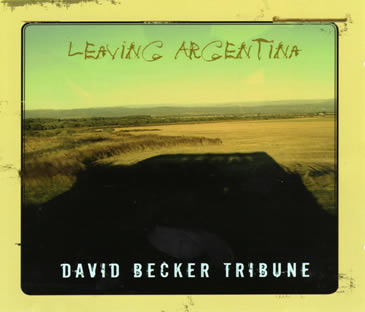
REVIEWS FOR "LEAVING ARGENTINA"
BBC Review - 02/22/08
“A jazz album with a hint of latin spice and a whole lot of warmth, skill and style.”
- Guy Hayden, BBC
Ohio born Becker mixes a regular recording career with touring and teaching guitar all over the world - always a sign that someone has both a real love of their instrument and a genuine talent for it, too. Another sign of someone's class is the level of talent that they have played with - in Becker's case this includes time with Miles Davis, Chick Corea and The Yellowjackets. Pretty good company.
READ ENTIRE ORIGINAL REVIEW >>>
Jazziz Review
“Becker once again distinguishes himself as a talent worthy of wider recognition on the strength of this potent, eclectic outing...”
- JAZZIZ MAGAZINE
On Leaving Argentina, veteran guitarist David Becker captures the rich ambiance of faraway places like Patagonia, Buenos Aires, Cordoba and La Plata as well as inspiring sights like the Andes mountains. “It’s basically a record that came about from going to Argentina a lot,” says the accomplished six-stringer and leader of the flexible and highly interactive trio Tribune. “I’ve been there five or six times in the last two years and just started writing a bunch of music that was inspired by being there.”
Accompanied by the flexible rhythm tandem of brother Bruce on drums and Bolle Diekmann on fretless electric bass and upright acoustic bass, Becker once again distinguishes himself as a talent worthy of wider recognition on the strength of this potent, eclectic outing, a followup to Tribune’s 2004 offering, Where’s Henning?
“This is actually sort of a jubilee for me and Bruce,” says the guitarist who shuttles back and forth between homes in Los Angeles and Wuppertal, Germany. “It’s the tenth album we’ve done together in 20 years. I think it has elements of almost everything that we’ve touched on over the years, and I think it’s a natural progression to where we’re at right now musically.”
Sessions for Leaving Argentina were held in three cities -- Wuppertal, North Hollywood and La Plata. Becker brings his inimitable warm tone, fluid linear concept and varied harmonic palette to bear on all the material here, further establishing his place in the post-Metheny guitar world. “I’ve always been a fan of the guitar trio,” he says. “And for me it’s about trying to make the trio have a high degree of interplay while also being able to get away from the standard jazz guitar trio sound. One of the things that I’m most proud of is that people often say it’s a bigger sound that we get. I think that has to do with the arrangements and particularly the musical relationship that Bruce and I have now going on more than 20 years.”
Indeed, the brothers Becker have forged an uncanny chemistry over that time and they are aided immeasurably on Leaving Argentina by the stellar German bassist Bolle Diekmann, who reveals a decided Jaco Pastorius influence on several numbers, including his lyrical fretless electric bass showcase, “Cordoba.” Says Tribune’s leader, “Bolle’s great. He’s definitely a big Jaco fan but he likes a lot of other bassists too. He’s one of the most musical guys I’ve ever played with, and one of the nicest too. I’ve known him for a long time. We’ve played together a great deal and he’s just a great addition to the trio. He fits in very well with what we’re all about. The musical thing that he likes definitely connects in some way with what Bruce and I like.”
Certain tunes on Leaving Argentina, like aggressively swinging, highly interactive trio numbers “Cafe Con Leche,” “Rio De La Plata” and the boppish uptempo burner “Racin’ Through The Andes,” may recall Pat Metheny’s groundbreaking Bright Size Life (recorded in 1976 on ECM with kindred spirits Pastorius on bass and Bob Moses on drums). Other Becker originals like the driving opener “El Sueño De La Araña Roja,” the authentic tango number “It Takes Two” (with special guest bandoneon player Dario Polonara) and the dramatic Native American flavored “Patagonia” combine exotic world music elements with David’s own inherent jazziness for a wholly unique hybrid of styles.
Elsewhere on Leaving Argentina, the guitarist reveals his gentle side on the unaccompanied acoustic guitar number “Mentras Duermes (While You Sleep)” and also on the bittersweet ballad “Hard To Say Goodbye,” which is underscored by Bruce’s sensitive brushwork and Diekmann’s upright bass. “Cordoba” is a brilliant showcase for Diekmann’s fretless virtuosity while Becker’s other brother Ed makes his recording debut on the evocative title track, which was originally conceived as a duet between drums and guitar. The trio also turns in a poignant rendition of Keith Jarrett’s “Memories of Tomorrow” (perhaps the most requested tune from his landmark Koln Concert recording on ECM). And they strike a gently swinging accord on Becker’s sprightly “Waltz For Lavignia,” which the guitarist performs on his Martin acoustic.
“We had played most of these tunes on the road, so we had a chance to let them mature by performing them for audiences. So on our tour of Argentina we had a chance to gauge the response and really refine them a lot before going into the studio later to record them.”
Bridge Guitar Review
“All musicians get plenty of room to demonstrate their skills on their instruments... but David's jazz guitar just gives the music great diversity full of musical skills.
An album to discover and enjoy! ”
- Henk te Veldhuis, JAZZIZ MAGAZINE
Born in Ohio, USA, David Becker joined stage with artists like Miles Davis, Chick Corea and The Yellowyackets. He found a very good teacher in jazz guitar master Joe Diorio and played at many acclaimed guitar festivals.
David Becker now releases his tenth CD called in his career which last over 20 years. He teaches guitar worldwide on music schools and released a guitar book called “Getting Your Improving into Shape”.
“Leaving Argentina” is a Latin American musical adventure through many countries. On this CD David Becker is assisted by percussionist Bruce Becker, bassist Bolle Diekmann and bandoneon player Daria Polonara. This ensemble mixes well with the soft and warm guitar tones of Becker.
The 12 compositions on “Leaving Argentina” have vary varied setups and moods, which take one on a musical journey through divers cultures. The guitar techniques of David Becker show great musical phrasing and melody line building capabilities. All musicians get plenty of room to demonstrate their skills on their instruments, while the guitar is never too dominant, but David's jazz guitar just gives the music great diversity full of musical skills.
An album to discover and enjoy!
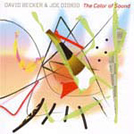
REVIEWS FOR "THE COLOR OF SOUND"
(David Becker / Joe Diorio | Acoustic Music Records)
allaboutjazz.com Review
“Becker and Diorio embark on a number of musical expeditions into different colors of sound and manage to create coherent, albeit abstract music that is a joy to listen to.”
- Budd Kopman, allaboutjazz.com
David Becker’s previous release, Euroland, was a multitracked affair where Becker himself played all the instruments to produce a layered sound that evoked different images through music.
On The Color of Sound, Becker plays duos with his mentor, Joe Diorio. For the most part, they both play standard electric guitar, but Becker throws in some synthesizer, a “tabla” guitar (a guitar with a playing card woven between the strings, plus an acoustic pickup to produce a pitched percussive sound), and a nine-string acoustic guitar (an open-tuned acoustic twelve-string with only nine strings). The two players perform live on the recording, except for some overdubbing of strings on “The Color of Sound” and “In A Minute,” the sitar sound on “Reflections Of India,” and brushes by Bruce Becker on the intro “Blues For Brother Bru.”
In terms of actual guitar sound, the two players are similar, using “hot” pickups with a bit of drive and reverb that allows one to hear the pick touch the string. Stylistically Becker and Diorio are clearly related, as expected, and their music has an abstract quality marked by unique chord voicings and lines that are often miles away from standard boppish guitar.
In the arrangements, Becker and Diorio have taken great care to maintain a distance from each other, so as to always present a clear picture to the listener. They stay out of each other's way and use different parts of the guitar’s range. Also, Becker keeps to the left channel and Diorio to the right.
The tracks include a very nice mix of standards, Becker compositions, and extemporaneous compositions—a bit of something for everyone. On the standards, the emphasis is many times on the give and take of ideas, rather than merely trading places soloing and comping, thus providing much fascinating listening. The soloing does allow the listener to get a glimpse into each player’s mind as they constantly flirt with the melody as well as the changes.
Becker states that the compositions he brought were written with Diorio in mind. “The Color of Sound” is a beautiful ballad, full of emotion, while “Waltz for Lavignia” has fun with the 3/4 time as it dances and swings.
On the five fully improvised tracks the degree of musical ESP can be heard, along with the most “modern” playing and stretching out. On these tracks, Becker and Diorio embark on a number of musical expeditions into different colors of sound and manage to create coherent, albeit abstract music that is a joy to listen to. The Color of Sound is a very fine record that should appeal to more than just guitarists. Becker and Diorio clearly had fun in the studio, and the fact that Becker could finally record with his mentor inspired him greatly. If you don't know these players, this release might make you look into their catalogues.
Bridge Guitar Review
“[Becker and Diorio's] collaboration on this album reflects a touching, intimate conversation on a celebrated musical journey...
This album is a must for any serious jazz enthusiast. ”
- Henk te Veldhuis, Bridge Guitar
Two jazz virtuosi meet on this album. David Becker covers both modern and traditional styles. Joe Diorio has always been an inspiration for many jazz guitarists.
Their collaboration on this album reflects a touching, intimate conversation on a celebrated musical journey. The repertoire they play is a mix of standards of composers like Gershwin, Victor Young , Jerome Kern and own compositions.
Both guitarists use different guitars. Diorio prefers his jazz guitar while Becker uses a tabla guitar, a nine-stringed acoustic guitar and the synthesizer. This all leads to a brilliant musical interaction where both players give each other lots of space to improvise as on Victor Young's Beautiful Love. Waltz for Lavignia by David Becker has an intimate setting in a enchanting ambiance. Dance Of The Inner City is a true master piece with percussive elements. How Old Are You? Is a wonderful musical journey with lots of contrasts, but nevertheless with a renewing modern and spiritual approach.
The Color of Sound composed by David Becker takes you on a intimate and reflective trip with astonishing sound escapades. Reflections of India paints that typical oriental atmosphere with expressive staccato play.
This album is a must for any serious jazz enthusiast.
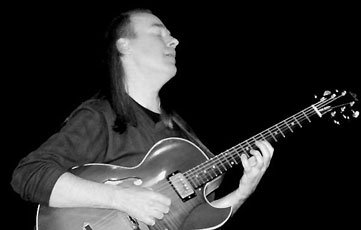
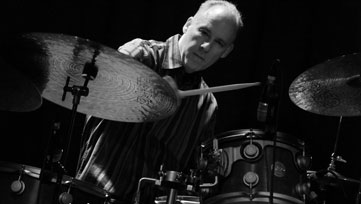
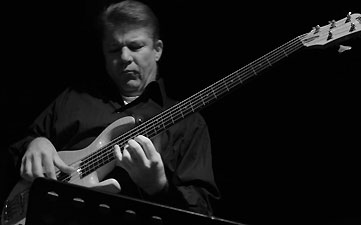
NEW MEDIA AND INTERVIEWS:
Colbie Caillat Fallin’ for You (English)
Colbie Caillat Fallin’ for You (Chinese)
La splendide Colbie Caillat vous entraîne à la plage pour parler (French)
—— O ——
DAVID BECKER INTERVIEW ON YOUTUBE
David Becker - Inspired
Artist Interview by: Fred Gerantab JazzReview.com July 2004
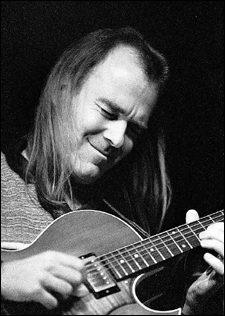
For over 20 years, guitarist/composer David Becker has continued to define himself as one of the best and most unique voices in contemporary jazz guitar. Combining diverse influences and a passion for the new and different, Becker's latest CD "Where's Henning?" reflects his gifts as a player and composer, and his ability to play for the present while always keeping an eye on the past and future.
Joined by his brother and longtime collaborator, drummer Bruce Becker and bassist Tom Lilly, Where's Henning follows the trio into the studio for an impromptu recording session. Selected from over 6 hours of music taken from these sessions, the CD combines unique originals and some well-known standards for what is undoubtedly a great, solid jazz record.
We spoke with David about the process of making the CD, his dual existence in both the U.S. and Germany, and what keeps him going to make better music each day.
JazzReview: Tell me a bit about the process of putting together Where's Henning?
David Becker: That's a good question. We didn't really know it was going to be a record, truthfully. The idea was just to go in and play, and see what would come out. I think a lot of the records we have made were more calculated in terms of composition, which I wanted to do, but we haven't done one that was just about going in and playing. My brother and I figured we'd go in, try and see what we could do with that idea - we didn't even listen to anything we recorded, until it was all finished. A lot of the tunes on there were either 1st take or 2nd take.
We kind of sat on it for about 6 months before we listened back to everything, and the only thing I had heard was a rough mix of Footprints and another tune I took on a CD that we listened to when we got back from Europe. I sat down and though, 'what are we going to do with it?', and started contacting some labels and that was what took place.
JazzReview: When was this recorded, by the way?
David Becker: It was 3 different days in L.A., in November last year and then I came back a couple of months later after being in Europe and we did about a half day, like a few hours, and that was when we got Green Dolphin Street, That Man's a Legend, and I Could Write A Book.
JazzReview: I assume these were studio, not live?
David Becker: All studio, one was a home studio of an engineer friend of Tom Willy, and the second was done at a studio owned by a guy who is partners with Steve Lukather [guitarist, of Toto fame], which had this great Neve console. This was the console they took from the studio in England that did [Pink Floyd's ] Dark Side of The Moon.
We had worked there before, and we ended up mixing the whole record there, and even though he's not really a jazz guy, he did an amazing job. We had 6 hours of music, so I flew straight to LA from Europe, got right off the plane and needed to listen to CDs of all these takes, and the 3 of us picked out what we thought should go on the record. There are some tunes like The Monkey, which we had 5 versions of. All of them were very different, but we chose what we thought the best representation was.
JazzReview: Having done all of the record in the studio, how did you manage to keep the sound as "live" as possible, which is what I know you were probably going for? Being a musician myself, I know it can be difficult to achieve in a very controlled recording environment.
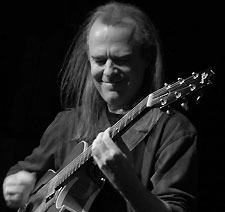
David Becker: Well, it's funny because we did a thing, a Sirius Satellite Radio today in their studio, which is basically like trying to play live. When you have headphones on and you're trying to make a record, it's a different mindset. The red light is on, but in our case, we just played. We didn't really care what happened. We were just like, "Let's give it a go and play." The first day was a long day, like 12 hours. By the end of the night, we were all exhausted. I said to Bruce [Becker], “Let's just go and do this one new one, and see what happens.” That resulted in As We Speak, I think because we really didn't think too much about it. It kept the vibe alive.
JazzReview: When you take a tune like a Footprints, or any frequently covered standard, the idea is always to give it your own spin and keep it fresh. Do you have a formula for tackling songs like that, or do you just sit down and go and see what comes out?
David Becker: It's a hybrid, really. In a case of Footprints, which I've been playing for over 10 years, you really play the tune enough where you can more naturally bend it the way you want. With Green Dolphin Street, until I really got to know it better, I didn't feel comfortable doing much with it. But we just took it and played it, and that was first take for us.
I Could Write A Book I had never played before, and other than working on a little chord melody idea, I didn't know what we were going to do with it arrangement-wise. I think Todd was even reading it out of the Real Book. One of the reasons I had been waiting so long to put this record together was I just didn't want to do another clinical version of All Blues, what one of my German students calls “conservatory jazz." If there's a fresh touch to it, it's because we play with no borders.
We do what we can while trying to keep respectful of the original composers, and so far the response has been pretty positive.
JazzReview: I guess being an educator you hold a lot of responsibility; When you sit down with your students, how do you get around that "conservatory jazz" stigma and show them the difference between real creativity and playing vs. “mathematics?”
David Becker: My brother and I were very fortunate having grown up with many different styles of music and languages. And, we had Art Blakey next to Chick Corea, next to Buddy Rich, next to Ralph Towner. It was never a situation where we were just looking to study on, period. It's also important to find your own voice, which takes a lot of soul searching, a lot of research into understanding the idioms enough that you can work around them. However, one thing is certain; the roots are always the same and you can't deny them.
I always encourage my students to go back and learn the history, to see the origins of all of these things that continue to influence the style to date, regardless of how much its evolved. It's easy for a student to go and pick up a video of Mike Stern, or of John Scofield, and kinda learn to do that. There are so many mediums for learning that you can kind of quickly learn to cop a style or mimic something, but not really get the depth of it.
There are a lot of 22-25-year olds I know in Germany who can play and sound kind of like Jim Hall, but there is none of the spark that you find with someone who is experimenting and trying to find their own voice.
Joe DiOrio didn't have a theme. He just said to play what's inside you. With all due respect to guys like Stern, Scofield and Metheny, I would never encourage my students to listen to them and try to play like them, ‘cause you can’t do it. You can learn from them, but you can see, 'oh they got this from Wes, or Jim Hall, or Miles' and start to put it together yourself. There are many guys out there who can play like Wes, and you hear them play with their thumb doing the octave thing. And it's nice, but it's like listening to Rich Little do his impression of Richard Nixon.
JazzReview: I want to divert for a second to your development, how your influences have shaped your sound and your own self-exploration that has led to who you are as a player now. You mentioned you had a great mix of influences, in terms of stuff outside the genre, like rock or pop, is there anything you 'd like to cite?
David Becker: Oh yeah, I remember the first record my father let my brother [Bruce] buy was a Glen Campbell record, and stuff like Beatles and Monkees’ records… most of the Motown stuff of the day. One of the first records I bought when I was 10 was from a group called El Chicano. They did this version of Leaving Toronto, which was a big hit. They did some of these really Latin-influenced tunes, and their guitar player was a huge Wes Montgomery fan, you could really hear it. They were a great LA band that had a couple of hits, but that was cool stuff. I didn't think about it at 10. There was a band called Greek, the Norwegian composer when I was five, and of course rock 'n roll came in. I was a big fan of Bad Company and Led Zeppelin, and of these bands of that time.
Led Zeppelin for me was an interesting thing too because I can really appreciate them now. They weren't just a rock band, but a band with all of these influences. If you look at some of the live DVD stuff from Zep, John Bonham is playing some of these Max Roach grooves that Bruce plays on Footprints.
You can translate that into an understanding of what I wanted to do; to be a musician you have to be open to all things. You can't just listen to a certain period and understand what's going on.
JazzReview: When you listened back to this record, either for the first time or when it was finally mixed and mastered and ready to go, what's the first thing that comes to you mind? Do you hear yourself saying, "This is different than anything that I've done before," or "I hear some things in my playing that I've never heard?”
David Becker: Well, yeah, we're definitely older. Bruce and I have been doing this now for 20 years. I definitely hear the development in my playing, and certainly in how Bruce and I interact. It inspires me to keep going and trying to tap into being a better player. One thing Joe Diorio told me was that you don't get to the good stuff until you're past 40, or 50. I'm 42 now, and looking forward to another 25-30 years of developing my own playing. You look into it by saying, “What is it that I do,” and “How do I perceive this?” Ultimately, it's about trying to always be a good student of music.
JazzReview: Did you sit down and initially know that this was the type of record we were going to do?
David Becker: We really didn't. My brother and I were sitting down rehearsing with Tom Lilly for a gig of standards we were going to do, and we were like, “Hey this sounds pretty cool, be great if we had a recorder going.” I asked the guys if they wanted to go into the studi, and do a couple of days, and they were very into it. There were actually lots of different types of tunes we did that didn't make it on there, mostly because they didn't fit in context of what the rest of the songs sounded like. But we really didn't sit down and say, “It has to be this kind of record.”
JazzReview: What are some of the things that inspire you to play, to write, on any level, not just musical inspiration? I've asked this question many times, and the answer always varies greatly, from art and family to travel. You are very well traveled, I would imagine that could be a big part of it.
David Becker: It's a couple of things. One of the things that keeps me going as a player is that I love to play, and when I have the time in between teaching and traveling I try and just play and learn new tunes. As far as writing is concerned, I am definitely inspired by being in different places, hearing different languages. I might be sitting at the North Sea, and just look at the sea and get inspired. Some guys need to get inspired by being in the mountains, but I think I just think about musical ideas. There are so many things out there that I think I have enough ammunition to keep going.
JazzReview: In conclusion, as someone who's had a long career, what is some advice you would always give young players to develop their careers and to keep going?
David Becker: Most importantly, stay focused. As long as you have the hunger to learn, you will continue to move ahead and find inspiration.